What is Herpes and the types of Herpes?
Herpes is a sexually transmitted disease (STD) caused by two related, but different viruses. Herpes simplex virus type 1 (HSV-1) and herpes simplex virus type 2 (HSV-2). It is a very common disease that affects an estimated minimum of 45 million people in the US.
Herpes type 1 is mostly found on the mouth in the form of a cold sore or fever blister, therefore it’s usually called oral herpes. Herpes type 2 is presented in the form of outbreaks in the genital region; as a result, it’s called genital herpes. It is possible, however, to have type 1 in the genital area and type 2 in or on the mouth.
How is the virus spread?
Herpes can spread easily through contact with open sores during sexual activity. This includes vaginal, anal, or oral contact.
It can be passed from one person to another. Although infection is at its highest when there is an outbreak of open sores, you can still get herpes even when there are no active sores showing.
The (HPV) virus can also be transmitted without sex, kissing, or touching the infected area while having a cut in your hand or lip. All that’s needed to pass the virus is brief skin-to-skin contact.
Who should get tested?
If you’re a sexually active individual, have multiple sexual partners, engage in unprotected sex, are in a relationship with someone infected, entering a new relationship, or if you are unsure whether you have the virus, then you should definitely get a herpes test at our urgent care.
Are there any herpes symptoms?
Yes, but they are not always present. Oral herpes can appear as painful blisters or cold sores inside and around your mouth.
People with genital herpes can be infected with the virus and not present any symptoms for a period of time. When herpes 2 symptoms show up, they can cause itching or blisters on your genitals and burning or painful sensation during urination.
“Outbreak” is the name given to describe herpes 2 sores or any other symptoms. It’s possible to have herpes and not experience a single outbreak for years. As a result of not having symptoms that you can feel or see, the only sure way to know whether you are infected with the virus is to get a herpes test done.
What tests are available to diagnose Herpes?
The test that we use will not only determine whether you have herpes or not, but also distinguishing which infection you have. Herpes 1 or herpes 2 can be tested for. During an initial consultation at our center, the doctor informs you whether you are ready to get tested and, if not, when you should come back. Your test results will be available in 3-5 business days.
A blood test or culture can identify the presence of herpes. A number of medications are available to reduce or prevent future herpes outbreaks. Herpes can be serious if it infects people with weakened immune symptoms.
What treatment can be offered for positive herpes test results?
There is no cure for herpes. Our providers can prescribe you antiviral drugs, such as acyclovir (Zovirax), famciclovir (Famvir), and valacyclovir (Valtrex) that may help you control, decrease the severity, or shorten your symptoms.
Some drugs can be taken daily to suppress the virus to prevent an infected person from passing the virus to their sexual partner. Until the sores have healed, sexual contact must be avoided.

